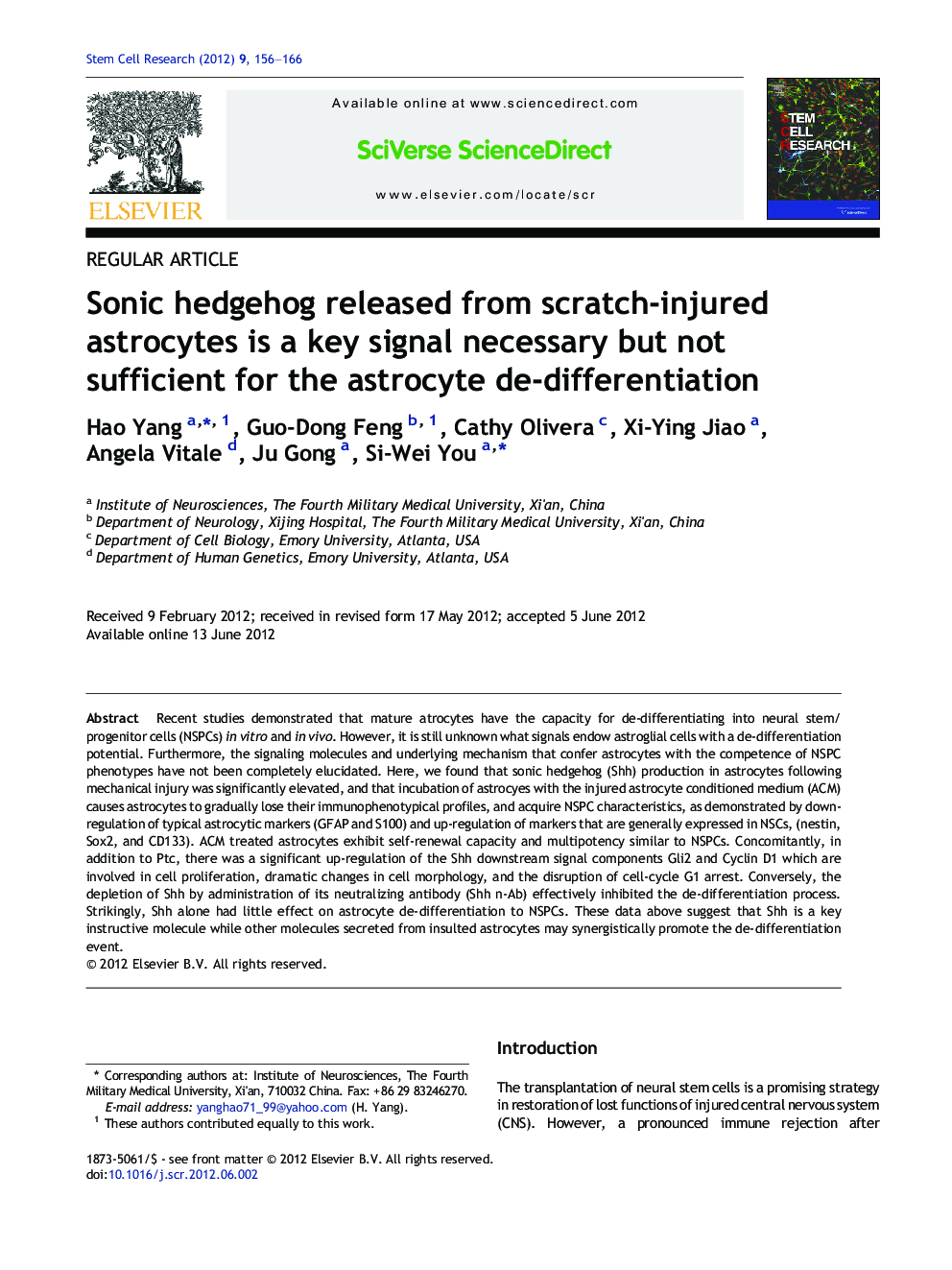| Article ID | Journal | Published Year | Pages | File Type |
|---|---|---|---|---|
| 2094621 | Stem Cell Research | 2012 | 11 Pages |
Recent studies demonstrated that mature atrocytes have the capacity for de-differentiating into neural stem/progenitor cells (NSPCs) in vitro and in vivo. However, it is still unknown what signals endow astroglial cells with a de-differentiation potential. Furthermore, the signaling molecules and underlying mechanism that confer astrocytes with the competence of NSPC phenotypes have not been completely elucidated. Here, we found that sonic hedgehog (Shh) production in astrocytes following mechanical injury was significantly elevated, and that incubation of astrocyes with the injured astrocyte conditioned medium (ACM) causes astrocytes to gradually lose their immunophenotypical profiles, and acquire NSPC characteristics, as demonstrated by down-regulation of typical astrocytic markers (GFAP and S100) and up-regulation of markers that are generally expressed in NSCs, (nestin, Sox2, and CD133). ACM treated astrocytes exhibit self-renewal capacity and multipotency similar to NSPCs. Concomitantly, in addition to Ptc, there was a significant up-regulation of the Shh downstream signal components Gli2 and Cyclin D1 which are involved in cell proliferation, dramatic changes in cell morphology, and the disruption of cell-cycle G1 arrest. Conversely, the depletion of Shh by administration of its neutralizing antibody (Shh n-Ab) effectively inhibited the de-differentiation process. Strikingly, Shh alone had little effect on astrocyte de-differentiation to NSPCs. These data above suggest that Shh is a key instructive molecule while other molecules secreted from insulted astrocytes may synergistically promote the de-differentiation event.
► Sonic Hedgehog (Shh) production in astrocytes after mechanically injury is elevated. ► We examine the effect of Shh on astrocyte de-differentiation to neural progenitors. ► Shh promotes the astrocyte de‐differentiation event depending on other signals in ACM. ► They can activate the de‐differentiation pathway components Ptc, Gli2 and Cyclin D1.
